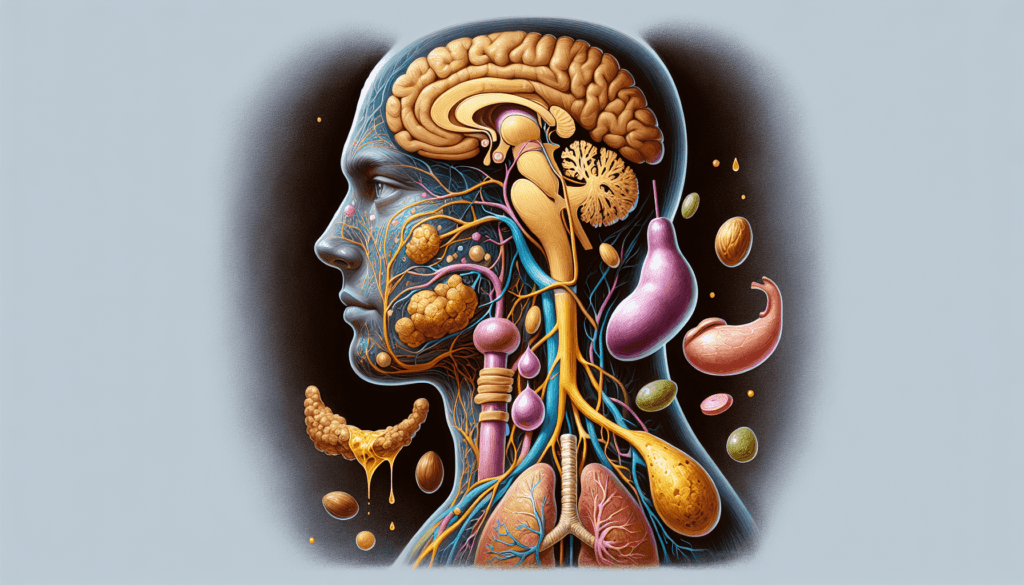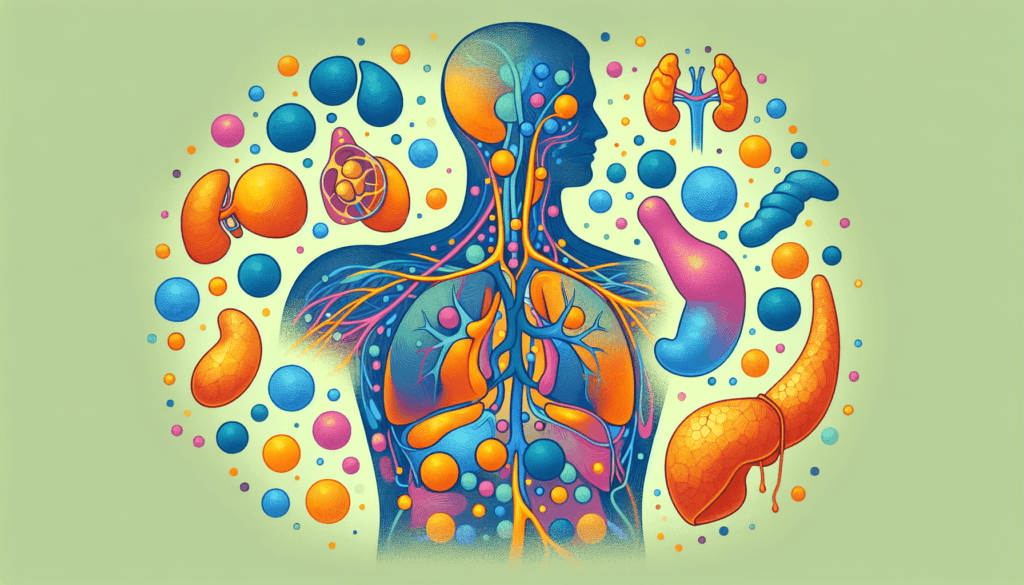Have you ever wondered how your body knows when to wake up, when to sleep, when to feel hungry, or even when to grow? These everyday activities are orchestrated by a complex network of hormones, those tiny chemical messengers with monumental impacts. Understanding the role that hormones play in human physiology can feel a bit like uncovering the secrets of a well-oiled machine. So let’s take a moment to journey through the labyrinth of the human body and explore the fascinating world of hormones.

What Are Hormones?
Hormones are essentially the body’s messengers, composed mostly of proteins or steroids, communicating with organs and tissues to regulate bodily functions. Produced and secreted by various glands, these substances drift through the bloodstream, making their way to different parts of the body where they’re needed. You can think of them as important emails carefully routed to improve every system’s efficiency.
The Main Glands of the Endocrine System
Table of Contents
The endocrine system is crucial for hormone production. Comprising a collection of glands scattered throughout the body, each plays its part like instruments in a well-tuned orchestra. From the brain’s pineal gland to the pancreas nestled in your abdomen, each gland plays a significant role. Here’s a quick overview:
| Gland | Main Hormones Released | Location |
|---|---|---|
| Pituitary | Growth hormone, Prolactin, Oxytocin | Base of the brain |
| Thyroid | Thyroxine (T4), Triiodothyronine (T3) | Neck |
| Adrenal | Cortisol, Adrenaline | Top of the kidneys |
| Pancreas | Insulin, Glucagon | Abdomen |
| Gonads | Estrogen, Testosterone | Reproductive organs |
| Pineal | Melatonin | Between brain hemispheres |
Isn’t it amazing how these glands are spread across various regions of the body but collaborate so effortlessly to keep everything in sync?
How Do Hormones Work?
Hormones work by targeting specific cells that have compatible receptors for them. Upon reaching their destination, they bind to the receptor site, triggering changes within the cell. It’s a bit like a key turning a lock, opening the door to a cascade of cellular responses. This concept explains why a hormone like insulin acts upon blood sugar levels, whereas adrenaline might spur your body into a “fight or flight” response.
Types of Hormones
Understanding hormones involves knowing the variety in their types. Broadly, hormones can be categorized into three main types:
- Peptide Hormones: Made of chain-like structures of amino acids, such as insulin.
- Steroid Hormones: Lipid-based, derived from cholesterol, examples include estrogen and testosterone.
- Amine Hormones: Synthesized from amino acids, like epinephrine.
Each type has its unique method of influencing the body, contributing to the intricate dance of hormonal activity.
The Importance of Hormones
It’s difficult to overstate the importance of hormones in maintaining health. They orchestrate activities ranging from regulating metabolism, influencing mood, and coordinating growth development, to even controlling fertility and cycles of sleep and wakefulness. Without them, our bodies would struggle to perform day-to-day activities.
Hormones and Growth
From the moment you’re born until you reach adulthood, hormones influence varying stages of growth and development. Consider growth hormone secreted by the pituitary gland, pivotal during childhood and adolescence. Its absence or dysfunction can lead to conditions like dwarfism or gigantism, shedding light on how crucial its role is in ensuring balanced growth.
Metabolic Functions
Metabolic hormones help the body convert food into energy. Thyroid hormones, like thyroxine, set the pace for your metabolism, influencing how quickly you expend energy from food. Have you ever noticed how your body’s needs change with seasons or stress levels? That’s often your thyroid and adrenal hormones working to keep you balanced.
Hormones’ Influence on Mood and Emotions
Have you ever felt inexplicably happy or moody for no discernible reason? Often, this is the handiwork of hormones. Consider serotonin, a neurotransmitter associated with happiness and well-being. An imbalance can lead to mood disorders such as depression or anxiety. Interestingly, hormones like oxytocin, often dubbed the “love hormone,” play significant roles in developing trust, empathy, and bonding in relationships.
Stress and Cortisol
Cortisol, often known as the stress hormone, has a bad reputation, and to some extent, rightly so. Essential for your body’s “fight or flight” response, too much cortisol due to chronic stress can lead to health issues like weight gain, heart disease, and insomnia. Learning to manage stress is not about eliminating cortisol altogether but maintaining a healthy balance.

Hormones and Reproductive Health
Hormones like estrogen, progesterone, and testosterone play significant roles in reproductive health. From regulating menstrual cycles to supporting pregnancy and influencing libido, these hormones ensure reproductive processes unfold smoothly.
How Hormones Affect the Menstrual Cycle
The menstrual cycle is a perfect illustration of hormonal interplay. Estrogen and progesterone fluctuate, preparing the body for potential pregnancy. Meanwhile, follicle-stimulating hormone (FSH) and luteinizing hormone (LH) orchestrate ovulation. Understanding this dance can enlighten individuals about fertility and reproductive health.
Testosterone and Male Health
Although often associated with men, testosterone is important for both genders. In men, it influences physical characteristics such as muscle mass and body hair. Low testosterone levels can impact mood, energy, and sexual health, indicating its wider implications beyond just reproduction.
Hormones and Sleep
Ever struggled to fall asleep or stay awake during the day? Melatonin, produced by the pineal gland, regulates your sleep-wake cycle. In essence, it primes your body in response to light and darkness, helping you embrace night as a time for rest. Conversely, disruptions in melatonin production can lead to sleep disorders like insomnia.
Conclusion: The Harmony of Hormones
Hormones are incredible messengers working tirelessly to maintain balance and order in your body. Each hormone, whether though small in quantity, has an outsized role in keeping the body functioning optimally. A deeper understanding of how they work highlights the importance of maintaining hormonal harmony for overall health and well-being. When the order is disrupted, it can lead to various health challenges, which underscores the importance of listening to and nurturing your body’s needs.
In essence, your body’s symphony of hormones is a masterpiece—a delicate, balanced dance that sustains life’s rhythm. Keeping in tune with this dance is crucial for both health and happiness.





